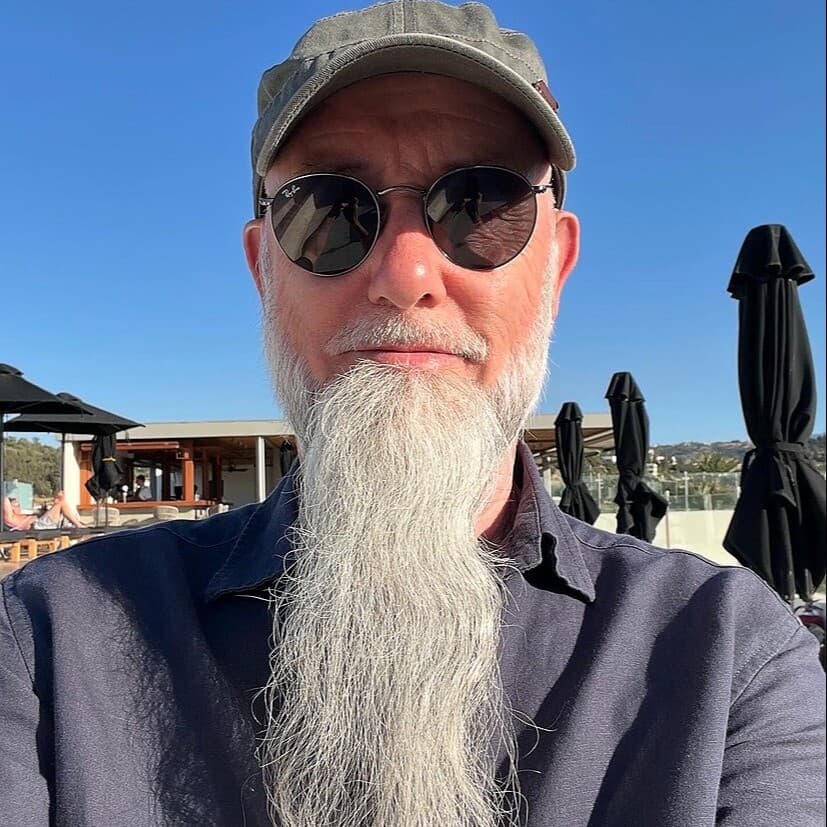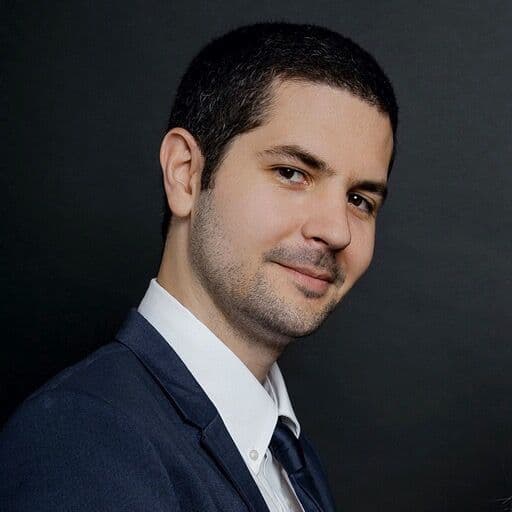The Writer As An Entrepreneur: Rewriting Your Personal Narrative

The Writer As An Entrepreneur: Rewriting Your Personal Narrative

Branding and Your Personal Narrative
There is perhaps one assignment that we don’t consider using our talents for very much, and it’s rewriting our personal narrative. You really should consider it as your most pressing deadline because people who are interested in purchasing your screenplay or investing in your film will want to know who they are dealing with.
Who are you, and what is the why behind what you do? I had to write numerous scripts before I understood these questions and could answer them and before I knew my brand.
And some of the revelations didn’t even come from me, but from my friends – at parties, when I wasn’t expecting anyone to answer my greatest existential concerns.
“This is Geoff. He’s a writer of dystopian stories.”
Ah! So, that was the ‘what’ question answered.
The ‘why’ came from looking at my work and seeing that there were common themes; yes, dystopian landscapes and environments, but also looking at injustice around the world, totalitarian States, human suffering, social control set against liberty, non-violence as a response – or what Ghandi called Satyagraha (truth force). In the Daoist tradition, it’s called ‘Wu Wei’, or ‘do not force’, as personified by Chuang Tzu.
Themes like that led me to the why. The why was necessary and came from searching deep inside, because I believe that storytellers have the power to change any reality and this is probably why despots around the world have artists, writers, and filmmakers incarcerated, or worse, forced to listen to an anthology of despotic dogma over the speakers in their cell. These creatives were the ones who could change people’s minds or tip the nod about the emperor’s new clothes.
The why for me, was that I needed to address these issues, not from a soapbox, but to enter the imagination of the audience and get people to generate images of their own. That’s where the real storytelling begins. If that happens, then I’ve got you.
And does this translate to something beyond the written page? Yes. Whilst my personal tagline is ‘Writing is my activism, Directing my lucid dreaming’, I am an avid supporter of charities like UNHCR – that is, the UN’s High Commissioner for Refugees.
“There is a time for putting together
And another time for taking apart.
S/he who understands
This course of events
Takes each new state
In its proper time
With neither sorrow nor joy.”
-The Way of Chuang Tzu
A Reality Check
Do you feel that it’s tough being a filmmaker in your country? Then you simply need to assess your situation in the light of what is happening in Iran, or more accurately the Islamic Republic of Iran, as one filmmaker was at pains to point out to us. “This is not my Iran!”
Look at Mohammad Rasoulof, sentenced to prison (before Cannes) for 8 years; Dariush Mehrjui – stabbed to death; Jafar Panahi – banned from making films; and, most recently, Maryam Moghadam and Behtash Sanaeeha. One of the reasons for their arrest was that they were “making propaganda against the regime.” Well, at least they owned up to being a regime, I suppose!
This, then, is our reality check. If we think the going gets tough for us, look at these people for a sense of perspective. Naming them means they are not forgotten and that the aim is justice for these luminaries. Their light shines in the darkness.
We need to stand with them and not forget them.

Back to Rewriting the Personal Narrative
Why are we storytellers? Not the what – our favourite genre - but the why of what we do. Yes, storytelling can change the world because it can change the narrative that informs and misinforms our lives. A narrative that says people are exploitable, can be trafficked for profit or incarcerated if they resist a ‘regime’. I think that is worth the ‘sacrifice’ of me getting out of bed in the morning and writing up a storm for the cause of justice.
My personal narrative started with me realising something...
Curiosity.
It may kill cats, but it is the lifeblood for writers. As a young lad, I was always curious. Why did the world look like this? Why did it work this way? And more interestingly, why does it create so many victims?
I took this curious mind to my first degree as a mature student, back in 1987 – aged 30. I studied Art History, and that question of why things look like they do, fed straight into my education in Bristol. I even managed to get a few answers.
In my soon-to-be 68th year, I am still curious. Probably even more so! There are attempts to drown out that curiosity with the noise of social media, telling me; how to be a writer, a filmmaker, the 10 things I need to do when writing a script, the 3 things every screenwriter must know, the 12 golden rules of filmmaking that must be followed or no one will ever take me seriously. You know what I’m talking about, right?
It's perplexing to follow all these rules for what inevitably ends up as cookie-cutter scripts. It crowds out the very inquisitiveness I had that led to a story. Is this next sentence controversial?
All you need to know is how to format a script, and the rest is up to you.
Tell your story without a guru-demon sitting on your shoulder and tutting or grimacing as you write. Flick them off and then put them through the paper shredder.
Then, when the first draft is done, share it with trusted friends and fellow writers and get the feedback that you need to hone your craft. The next version will be so much better, and you haven’t spent a fortune on books from notable authors who offer you a master plan for success.
Don’t follow the canons of conformity. Curiosity knows no bounds; it brings liberty to your imagination. The world you are writing about suddenly gets bigger.
My Personal Narrative – A Note to Myself
I wrote this for my personal narrative. “Don’t conform to a thousand disparate words of how-to wisdom, but be transformed by rewriting your personal narrative.”
As Howard Thurman would put it, “Look for the sound of the genuine” within you.

Neuroplasticity
Neuroplasticity; now there’s a word to conjure with! It simply means that our minds, our neural pathways, are more malleable than we thought.
A simple definition of neuroplasticity, courtesy of Dr. Google: ‘It is the brain’s ability to reorganise itself by forming new neural connections and pathways throughout life, in response to experience and learning.’
Let me encourage you then, with the idea that your brain already has this ability and is waiting for you to form new connections and pathways in your brain so that they then inform and empower you to act on your career in filmmaking.
I would also add that meditation is a great way of reorganising those pathways and erasing words like; imposter, second-rate writer, outsider, and I can’t do this. It’s too difficult. I’ll never succeed.
It is a way of calming your mind and helping you to transcend the trivial.
Neuroplasticity also has a role in healing us from damaging experiences and changing the negative energies that impede our progress. The good news is that we all have this ability within us right now.
So, you’ve had negative feedback on your script or pitch deck. Someone that you trusted has let you down: a Producer or Exec. The possibilities for negative experiences seem endless and can weigh us down – if we let them. There is a choice to be made, and you don’t have to make it alone. There’s a whole community here at Stage32 that can help you navigate the negative and transform the treacherous nature of negative experiences.
Personal Narratives are a Form of Energy
Personal narratives are a form of energy that can move us into, or restrict us from, entering certain life situations.
Here are a few steps to help you along the way towards reforming your neural pathways.
- Step One: Create a list of your projects.
- Step Two: Assess the themes across your work.
- Step Three: Look at who you are now and to your past and present experiences to see what they say about your commitments. This is not an essay process but a list of your attributes. (It could be justice, equality, refugees, exploitation of women and children). You may not be focused on these; you may want to ‘just’ be a maker of films about Christmas, but the real question is the same. Why?
Your experiences may elevate some old wounds, which, yes, have a way of coming to the surface when something triggers them. I am going through some things now as we press on with Seeing Rachel and talk to people about international co-productions or international production service agreements. “What you, a working-class boy from Hartlepool?”
It takes time to rewrite some of these pathways, but let’s start with that old Hartlepool narrative. “I have good people around me who will help see this project to the marketplace.” “I am not that little boy from Hartlepool anymore, where the circumstances of birth placed me in a small industrial town with very few resources. Now, I have everything I need to thrive, not just survive.”
Every step I take in a new direction is an opportunity to rewrite my personal narrative: Why is this an important process towards social justice for me?
In answering that question, I will leave you with a word of wisdom from Barbara Holmes, who was a Civil Rights activist and writer.
“The exterior work of social justice is only as strong as the interior work that births and fuels it. We can’t heal as a community if we do not concern ourselves with healing our inner lives...We help solve our community’s problems when each of us faces our own sorrow, authentically and creatively.” -Joy Unspeakable: Contemplative Practices of the Black Church, p113
If you'd like to read the other blogs from this series, you can find them below:
- The Writer As An Entrepreneur
- The Writer As An Entrepreneur: Part Two
- The Writer As An Entrepreneur: Part Three- The Inner Work
Let's hear your thoughts in the comments below!
Got an idea for a post? Or have you collaborated with Stage 32 members to create a project? We'd love to hear about it. Email Ashley at blog@stage32.com and let's get your post published!
Please help support your fellow Stage 32ers by sharing this on social. Check out the social media buttons at the top to share on Instagram @stage32 , Twitter @stage32 , Facebook @stage32 , and LinkedIn @stage-32 .
About the Author

Geoff Hall
Screenwriter, Director, Producer
Personal: I grew up in the industrial north-east of England, in a little town called Hartlepool. I wasn’t academically inclined in those days, just forever curious about life. My school holidays were generally spent reading books hidden away at home, or playing football with my Dad and a few mat...




